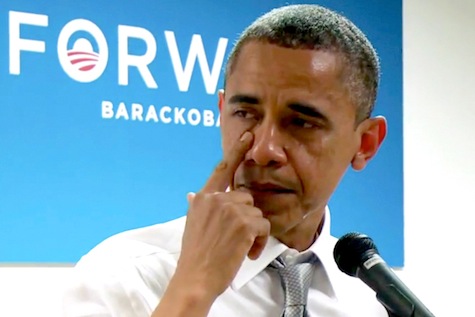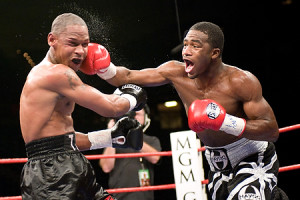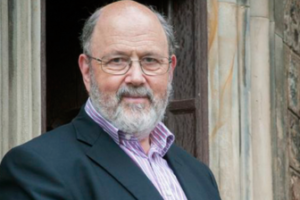There is a peculiar myth that is cherished by Americans. Dating back prior to the founding of the country, this myth has engrained itself into the very ethos of society. It has been the driving force of the American economy, its judicial system, and as of lately, it can readily be observed in its political system. This myth – and I call it a myth because it is untrue and phantasmal – is so contagious that it infects even the staunch rationalist. The American Myth is that there is a singular enemy or ideology that is plaguing the community, and if it were to be exposed and dealt with, a utopia of peace and happiness would flourish.
The idea here is that for the typical American, life is relatively simple and safe, except for that one thing. Now, there is obviously more than one thing wrong in the world, but the average American only has enough mental and emotional capacity to deal with one. Herein lies the American problem that can be easily solved by the American Myth. The multitude of problems daily faced are not actual or real problems, they are side-effects of a bigger issue that run deep beneath the surface. In certain situations, this may be true. There are times that an individual’s actions represent deeper psychological and emotional pain. However, this is not to what I am referring. The “Enemy” within the American Myth often takes the form as the “Other”—an Individual, a community, or even an Idea (often embodied by a particular social group) that is foreign to what may be properly called “American.” Obviously, there is nothing that is truly “American” (Besides “Nascar, Budweiser, and Freedom”), but it is about what may be perceived as American and what runs counter to this perception that makes up the sides of the war. This Enemy may have its hand in various domains, but the hero or heroine must look past the smaller situations to deal with the “real” enemy.
The power of a Myth is that it gives explanation to a natural or social phenomenon that may otherwise be a mystery. Like other myths, the American variety does include the supernatural be it god (often a shade of Jesus Christ), Reason, or Self. The imaginative quality of the Myth is that depending on your perception of “America” one person’s Savior may be another’s Satan. Whoever may be the antagonist, they often deal in subterfuge while publicly championing an agenda which finds its eschaton in the utopia. Every individual issue is seen as a battleground, but not everyone picks the same hills on which to die.
The American Myth can be seen in the issue of Abortion and the pro-life side’s war against it. Some people devote their whole life to end Abortion (which I believe is a noble cause), however, they often can relativize other important pro-life issues such as immigration, affordable health care, and gun violence. As we have seen in the past election, evangelicals who are perhaps the most vocal about the pro-life/Anti-Abortion issue voted for Donald Trump because they thought he would be the best option for ending abortion. And while the jury is still out, one can see how the American Myth contaminated their vote. They believed rather subconsciously that the overwhelming problem of the world was abortion, and that by ending it, there would be utopia.
This is the danger of the American Myth. It fails to recognize the world in its reality, i.e., that it is far more broken than we think, and we, the presumed heroes and heroines, are far more broken than we would like to admit. When a group fails to see reality, their attempts to mend the world results in a world that is the same amount of broken with the same amount of enemies. How much good are stitches when the patient has also contracted pneumonia? From Witch hunts to the Red Scare to the Birther Movement, America has been so keen to find kryptonite, that they may even kill for it. The Orwellian pigsty and the casualties it creates spawn ideological avengers which further complicates the war zone. The trenches get dug deeper, the bombs keep getting bigger, and no amount of positive or negative movement can be seen. The world is just as broken as it was before we set out to fix it.
Now, here is a word to my Christian brothers and sisters: Often I have heard you respond to tragedies with the statement, “It’s not an X problem, it’s a Sin problem”. While at face value, this appears true, I’m afraid that you have been infected by the American Myth. When the prophets are indicting Israel and warning them of impending doom and exile, they do not merely chalk it up to Sin. Micah explains that God’s people will be judged for Idolatry (1:5-7), unjust leadership (3:1-4), extortion (3:11), and violence and murder (7:2). Isaiah does not talk about Israel’s problems in general terms but says, “Wash yourselves; make yourselves clean; remove the evil of your deeds from before my eyes; cease to do evil, learn to do good; seek justice, correct oppression; bring justice to the fatherless, plead the widow’s cause (Isaiah 1:16-17). In the Sermon on the Mount, Jesus exhorts his audience not just to turn from evil, but to do so in very specific ways. Throughout the Gospel of John, Jesus makes a distinction between the world and what is “from above.” This dichotomy shows that there isn’t just one thing that is wrong, but it is a paradigm shift. Paul furthers the issue, “For he must reign until he has put all his enemies under his feet. The last enemy to be destroyed is death (1 Corinthians 15:25-26 ESV). If death is the last enemy to be defeated, this means that there has to be more than one enemy. The Bible never talks about there being one enemy, it simply says that there is one God and one Savior who must make all things new. This is true reality: the whole world must be remade. The hope of the American Myth, i.e., the utopia, is not the issue, rather it is the means by which one enters this utopia that is the problem. True Christianity acknowledges that this world will not simply cut it, it needs to be transformed and renewed by the power of the Triune God. Our problem is not simply Sin in the abstract, but it is that our world is fundamentally plagued by Sin, and “the whole of creation has been groaning together with labor pains until now” (Romans 8:22).
So what is the solution to our problem? What is the alternative to the American Myth? In short, it’s the gospel of the Kingdom of God. It is an alternate narrative to the one we have constructed for ourselves. It is beautiful for it fulfills the dire longings of our heart while staying true to reality, unlike our American Myth. We must recognize the vast wasteland that is our world and we must weep. Yet, we do not weep like those without hope, for the crucified King and the risen Christ has provided a means for redemption. By the Spirit, we are able to participate in His great work as he is “making all things new” (Revelation 21:5).
There was another mass shooting in California on November 14th. This comes on the tails of another mass shooting (the largest one yet) in Texas on November 5th, which comes on the tails of another mass shooting in Las Vegas on October 1st. Between these events, another 42 mass shootings have occurred. Here, the American Myth and its demand for cultic allegiance can affect you in a few ways. You may stamp and holler and shout that this must stop (and you would be right), and you may propose all sorts of things that may or may not work. However, if you think that getting rid of guns (in whatever fashion) will solve the last hurdle blocking utopia, you are misguided. If you, on the other hand, believe that arming all of the good guys will solve the issue, and lead the world into utopia, you are also mistaken. Or you may think subconsciously that while a tragedy, the real issue is abortion, or Trump in office, or climate change, or the agenda of climate change. Your mind is ensnared by the god of the American Myth.
More guns or more gun laws will not solve the issue because the world is just too broken for such a simple solution. Our ethical obligations demand a much more compressive suggestion; our reality demands that we stop demonizing the “Other,” and recognize that we are all at fault. Just as our human physical actions have contributed to a global climate change, so have our moral actions contributed to a global ethics disaster. The solution is neither to Engorgio! or Reduccio! the issue. The issue is of the utmost importance, but it will not lead to the flourishing utopia the Myth promises. We must recognize this: that for all the effort we pour into something, there will be yet another something. First, it was slavery, then it was Jim Crow, now, as BLM and others have made clear, there is still injustice. This doesn’t mean that prior issues weren’t important, it’s just that we shouldn’t have been so naïve to think that was the only locked gate of our utopia. Now, when we are faced with an issue, we can see it for what it’s worth: drastically important but not of sole importance. Every issue we are fronted by is an opportunity to join the Triune God in redeeming it. We must pray “Thy Kingdom come” while actively working with Him to accomplish it. It is this eschatological view, a view with a much longer sense of time, that will save us massive heartbreak from the repercussions of the American Myth that we are experiencing now.
The bad news is that the utopia that the American Myth promises is false. The good news is that there is a real alternative in the gospel of Jesus Christ. It is a story in which we find ourselves having teamed up with the enemy, yet a story where the good guy swoops in for the rescue. Jesus Christ will defeat our enemies and will transform our world. The question that remains is whether we will follow him or cling to the god of the American Myth.





1 Comment
Leave your reply.